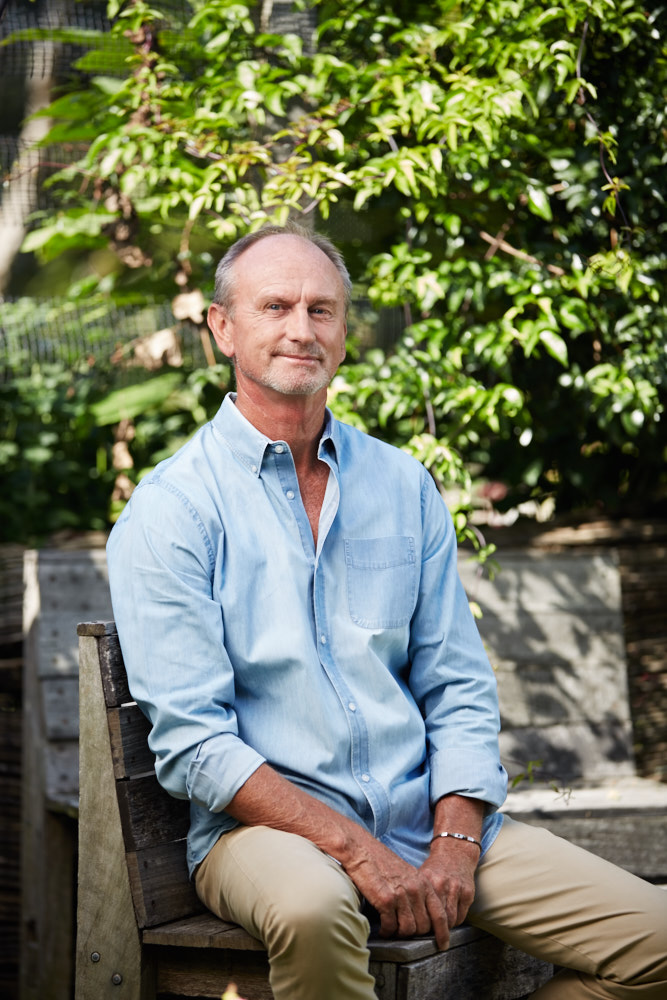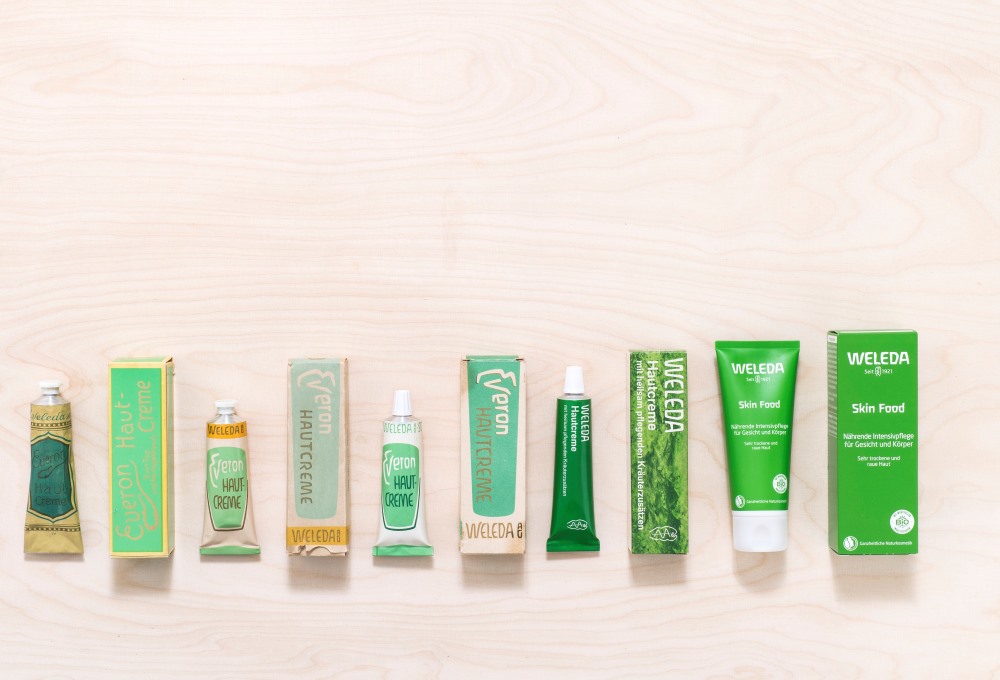The global natural and organic beauty market was on a massive roll before the Covid-19 pandemic fast-tracked consumer interest in wellness. Grand View Research predicts that worldwide sales in the sector will reach US$48 billion by 2025. A far cry from Weleda’s beginnings 100 years ago but one thing hasn’t changed. The Swissheadquartered company has remained at the forefront of the natural beauty category by never wavering from its founding philosophy: “In harmony with nature and the human being”. A mission statement that highlights the fact that Weleda’s history is not typical of a personal care company. The brand was founded in 1921 by Austrian philosopher Rudolf Steiner, Dutch doctor Ita Wegman and German chemist Oskar Schmiedel on the principles of anthroposophy – a then-groundbreaking idea that a biodynamic approach to health and skincare based on natural ingredients can stimulate the body’s own healing processes. Today, Weleda’s iconic range of moisturisers, serums, bodycare, babycare and natural medicines are sold in more than 50 countries, including Australia.

AUSTRALIAN BUSINESS GROWING STRONGLY / HIGHLIGHTING SUSTAINABLE FARMING AND BIODIVERSITY
David Johnston, CEO of Weleda Australia, has helmed the company since the brand’s debut here 13 years ago. A lifelong health enthusiast, his 30-year career also includes seven years as CEO of Go Vita Distributors, Australia’s largest wholesale and retail health store group. We have built up the local business bit by bit, mainly through health food stores like Go Vita, David Jones, online retailers such as Adore Beauty and Nourished Life and more recently Priceline, he says. “We debuted our Skin Food franchise in Priceline last year, which opened up a broader base. Skin Food first launched in 1926 and is a global bestseller with one tube sold somewhere in the world every 16 seconds. It’s not just Weleda’s integrity and biodynamic and organic principles that take their cue from our founder, Rudolf Steiner. One of his other major aims was to make quality, natural and organic products affordable and widely available as well.” Many products claim to be natural but don’t stand up to scrutiny in an era where consumers are demanding more transparency about the products they put on their skin. Weleda is celebrating its centenary year by highlighting its biodynamic farming and planet diversity principles. We have always focused on our responsible farming and sustainability methods and biodiversity in the soil, but we have also made great strides in packaging, says Johnston. “By the end of the year we want to have 65 per cent of our plastic packaging made from recycled materials. Our aim is to try and get to the highest recycled content of our plastics. Already over 80 per cent of our glass bottles are made from recycled glass and we use mineral oil-free inks. We also offer TerraCycle collection to our customers free of charge.”
THE BIODYNAMIC DIFFERENCE / AUTHENTIC CERTIFICATION
Many beauty and personal care companies today are making changes to their supply chain management and sustainability practices. But all of the ingredients used in Weleda’s products are either grown and produced by the company or through partnerships around the world with farmers, distillers, universities and NGOs using biodynamic and organic farming techniques. “When our employees, partners and others visit our farms they are amazed and gain a new understanding why biodynamic agriculture is key to our success,” says Johnston. Biodynamic agriculture is similar to organic farming, but also includes concepts like soil fertility, plant growth and livestock care. It’s part of Rudolf Steiner’s original vision to stop industrialising the land, says Johnston. “The core idea that makes biodynamic different to organic is that the method concentrates the bacteria in the soil. Producing 100 per cent natural ingredients using the right farming methods not only locks nutrients back into the soil, it also helps the communities we deal with to build schools and earn a living wage. Fair trade practices have become more important to consumers as they look for greater transparency.” Weleda has eight biodynamic farms of its own in Europe, Brazil, Argentina and New Zealand. All of the brand’s products are certified by NATRUE, a globally recognised quality seal of approval for natural and organic products. Weleda is also one of only two natural skincare brands to be certified as a member of the Union for Ethical BioTrade (UEBT), a global standard for sustainable sourcing introduced in mid-2018. We are also very proud of our initiative to help support Australia’s native bees with our Bee B&B Hotel project, says Johnston. “To date, more than 100,000 children have taken part in the project, which teaches primary school children about biodiversity and the importance of pollinators by building ‘bee hotels’ for their school kitchen gardens.”
GROUNDBREAKING NEW PRODUCTS / REACHING OUT TO CUSTOMERS
Weleda remains a leader in the natural beauty category because it’s methods and philosophy are as modern and relevant as ever. Weleda’s main customer base in Australia is aged from 25 to 45, says Johnston. “They are big fans of Skin Food, as are celebrities such as Victoria Beckham, makeup artists and models. The product keeps winning awards around the world, which really is a testament to how much consumers enjoy this product. But they also love our bestselling franchises, notably pomegranate. We expanded the range recently with Firming Facial Oil, targeted at customers aged 40plus. The entire range contains active ingredients to promote cell renewal, increase hydration and improve skin tightness and elasticity. The Firming Facial Oil contains eight organic plant oils including pomegranate seed, argan, macadamia, apricot, jojoba, safflower, sesame and avocado to deliver anti-pollution, moisturising and skin energising benefits.” Key products such as Skin Food date back decades, but Weleda has a continuous R&D program to develop new groundbreaking products. Nature is remarkable but human intervention such as a new distillation or extraction process can intensify natural benefits, says Johnston. “Another exciting release in the first quarter of the year is a new range based on Mexican prickly pear extract. Weleda spent several years perfecting a way of obtaining prickly pear extract in a unique patented process. The range has received great feedback overseas where it already launched and has proven claims in providing 24-hour hydration.” As part of its 100th anniversary, Weleda is also launching a worldwide campaign to promote its best-selling calendula babycare range, including a digital campaign, sampling and several collaborative partnerships. The brand launched the award-winning range in Priceline at the end of last year, following on from the success of its Skin Food debut. Made from extracts of hand-picked organic calendula, the lineup includes a nappy change cream, shampoo, body wash and body lotion and a stretch mark massage oil for mothers – during and after pregnancy. Weleda believes that communicating with its customers and attracting news ones is paramount and the company has been very active in getting its message across through a revamped website, brand education in-store and online and digital campaigns. Through its newly launched, digital ‘Open Garden’ platform Weleda invites consumers to experience nature from the palm of their hand. Users are invited to explore Weleda’s garden, stopping along the way to watch interactive videos or listen to stories from Weleda’s community of suppliers and experts. From bees to holistic healthcare, the Open Garden is a rich and engaging source of information about nature and the pivotal role it plays in all our lives. “We were around before natural and organic beauty became trendy and we want to be around for another 100 years”, adds Johnston.


